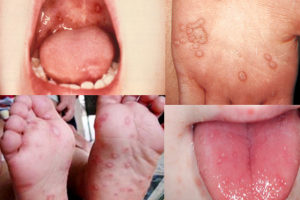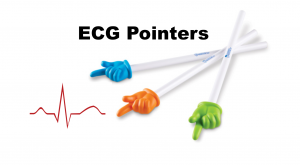Author: Jennifer Robertson, MD, MSEd (Assistant Professor, Emergency Medicine, Emory University, Atlanta, GA) // Edited by: Alex Koyfman, MD (@EMHighAK, EM Attending Physician, UT Southwestern Medical Center / Parkland Memorial Hospital)
Hypothetical Case
Dr. Jones is an intelligent, accomplished physician. He is well liked by his colleagues and he has received several patient compliments. Dr. Jones does have a history of anxiety and depression that was previously well-treated. However, because of recent personal stressors and a caring for a difficult patient, his mood declined significantly.
While Dr. Jones wanted to receive professional help, he was hesitant to do so for several reasons. He is interested in taking a job in another state and despite never having any malpractice cases, he is concerned that the new state licensing board will ask about his psychiatric history and refuse his application. In addition, his current work environment and employer are malignant, unsympathetic, and unsupportive. Dr. Jones is, thus, very concerned his employer and colleagues will find out about his mental illness. Therefore, he refuses treatment, ultimately quits his job and sinks into a deeper depression. He contemplates suicide daily.
In Part 2 of Physician Depression and Suicidality, the reasons behind under-recognition and under-treatment of physician depression and suicidality will be examined. In addition, the importance of addressing and treating depression will also be discussed.
A persistent problem?
As early as 1925, suicide was recognized as a more common cause of death in physicians than the general population (1,2). During this year, a review of records held by the American Medical Association showed that the rate of completed suicides in white male physicians was approximately 1.5 times higher than the general population. This trend was confirmed by later studies as well. A 1973 study of physicians in California found that, as a group, physicians are twice as likely to commit suicide than those in the general population (1). By 2004, a meta-analysis of 25 studies on physician suicide found that male and female physicians are 1.41 and 2.27 times more likely to commit suicide than those in the general population, respectively (3). Of note, these numbers may even be higher than recorded numbers due to under-reporting (4). In some cases, it may be difficult to prove suicide versus an accident or natural causes. It has been shown that suicides are under-reported to protect both the victim and/or the family from social stigma and insurance investigations (4).
While physician suicide is mentioned in academic papers, online journals and social media, there still seem to be few solutions. Despite extensive discussions on this topic, the statistics remain static. Proposed reasons for this may include physicians’ under-reporting of their distress, under-recognition of their distress prior to suicide attempts, and lack of preventative care (5, 6). Depression is an important risk factor in committing suicide and physicians are no less prone to the disease than the general population (4, 7). Yet, physicians who commit suicide tend to under-report their concerns prior to the event and receive less mental health care than non-physicians (5).
Denial and Under-Recognition
Proposed reasons for under-recognition of depression and suicidal tendencies in physicians may include the subtle symptoms of depression among physicians, physician’s fear of letting others know of his or her feelings, psychological barriers to seeking treatment, and/or fear of losing one’s job due to licensing or credentialing concerns.
Physicians may manifest symptoms of depression in slightly different ways than non-physicians. Symptoms of depression and suicidal tendencies are discussed in Part 1 of this discussion (http://www.emdocs.net/emdocs-wellness-part-physician-depression-suicidality/). However, symptoms can be subtler in doctors and thus, under-recognition may occur (8). For example, irritability, insomnia and withdrawal from others may be present in some physicians. In some, these symptoms may be short term. But a mood disorder may be an underlying problem in those with long term and/or progressively worsening signs and symptoms (8).
Besides subtle symptoms, other reasons for under-recognition of depression and suicidality in physicians may include physicians’ denial of illness as well as fear of divulging symptoms (6, 8). As a group, physicians tend to deny personal illnesses. They may be uncomfortable taking on the role of the patient (8). Physicians are perfectionists by nature and may also have fears of divulging any weaknesses, concerns or shame from perceived medical errors (8, 9). Perceived medical errors can have a significant impact on the development and/or progression of depression in physicians (10). Physicians might feel uncomfortable divulging perceived errors with colleagues, possibly because of the degree of competitiveness that is created by medical training and work environments (9). Physicians may deal with considerable shame from a perceived error and this may contribute to burnout, depression and even reduced levels of empathy (9, 10, 11, 12). Medical errors can also contribute to emotional distress in physicians and may play a substantial role in the “second-victim syndrome” (13). Second victims are the medical providers who sustain potentially long term or even permanent guilt, shame and depression as a result of their perceived errors (13, 14). Another article in this series will discuss the second-victim syndrome in more detail and why it remains a concerning issue in medicine.
Physicians are perfectionists by nature and they may have particular psychological barriers that contribute to their denial of the issues and avoidance of treatment. The medical community and underlying expectations of perfection might also contribute to this issue (14, 15). A physician may deal with failure, depression and shame in unhealthy ways and avoid family, friends and colleagues (16). This can lead to under-recognition of the problem, denial of illness, and lack of treatment. Without adequate social support, the physician may turn unhealthy behaviors such as alcohol and drug use and perhaps even suicide (8, 16).
Finally, physicians might be unwilling to admit their illness due to fears of job loss and inability to earn a living (7, 8). If they disclose their concerns, physicians may fear punishment such as discrimination in medical licensing, loss of hospital privileges and reduced ability for professional advancement (7). The good news is that most licensing boards have removed many questions about mental health and instead, ask about any history of professional impairment (7). However, physicians may still be fearful of disclosure because it remains unknown if the medical boards use any prior history of mental illness or impairment as a discriminatory action (7).
Lack of Treatment and Under-treatment
Because of the above reasons, physicians may not receive the recognition and care that they need. Physicians also tend to self-diagnose and self-medicate, which can lead to inadequate treatment (4, 6, 8, 17). Additionally, the culture of medicine does not place physician health as a priority. This is despite evidence that physicians do suffer from mood disorders and increased risks of suicidality (7). Long work hours, sleep deprivation, lack of support at work, and lack of autonomy at work and are further evidence that physician health remains a low priority in the medical community. All of these factors have been associated with poor mental and physical health in physicians (18-20).
Solutions?
As previously mentioned, physician depression and suicidality seems to remain a widespread topic of discussion. However, since these issues remain pervasive and persistent, it would seem that actual solutions remain few. That being said, some proposed solutions for hospitals, administration and/or training programs include the following: (7, 9, 21-23)
- Non-judgmental, non-punitive open discussions and protocols that address medical errors and difficult patient cases
- Reduce competitiveness in medical training
- Prevent burnout (a future emDOCS article)
- Encourage support from spouse/partner, family and friends and maintaining an individual life outside of medicine
- Initiate targeted educational campaigns
- Having leadership, including program directors, designated institutional officers, faculty and others who act as gatekeepers and encourage mental health and wellness among residents and medical students. This also includes devoting didactic time to educating students and residents about depression and suicidality in physicians.
- Ensure confidentiality
- Address any concerns regarding any potential ramifications of receiving mental health care on job security, regional licensure, malpractice, insurance, and disability coverage.
- Consider screening for depression in trainees using validated scales
A personal opinion:
I believe that the perfectionist and, in some cases, malignant medical environments are significantly to blame for physician depression and suicidality. The competitive nature of medicine and lack of peer support are, in my view, contributors to poor physician mental health. Of course, mistakes should never be taken lightly, but judgement and punishment should not be the solution. Most physicians inherently learn from their mistakes on their own without continuous judging, scolding and perhaps, life-changing punishment. In my opinion, this is not beneficial for anyone. The physician may learn a lot from his or her mistake, but as a result of judgment, scolding and/or punishment, he or she may also lose confidence, have worsening insecurities, develop severe depression and/or anxiety and may even quit medicine all together. As a result, the physician has suffered personally and society potentially loses another capable physician.
Physicians should try to always do their best, but when a mistake occurs, a learning opportunity should ensue. No physician ever wants to harm another individual, but since we are human, errors will occur. This is particularly an issue if the physician is tired or impaired, whether by lack of sleep or overwork. Thus, the medical culture should do its best to provide physicians the opportunity to learn from mistakes without fear of permanent or life-changing punishment. Making physician mental and physical health should also be a priority, as a healthy physician is one who is likely to make better decisions for patients (24).
Overall, the above solutions are really great starting points. However, physician depression and suicidality are, sadly, likely to remain issues unless non-judgmental and open dialogues are accepted. In my opinion, a simple website or phone number is not enough. A substantial effort should be made on all levels of an institution, including administrators and faculty members. Suicide prevention programs should include active and engaged mentors and faculty and these programs should allow physicians to feel comfortable enough to speak up. Unless physicians feel that their needs are heard honestly without judgement, then positive change, in my opinion, will not occur.
Physician depression and suicidality is certainly a complicated problem that will not be solved overnight. However, this has been a reported problem for decades. I think it ought to be time that the entire medical community listens.
References / Further Reading:
- Rose KD, Rosow I. Physicians who kill themselves. Archives of General Psychiatry. 1973;29(6):800-5.
- Emerson H, Hughes HE. Death rates of male white physicians in the United States, by age and cause. American Journal of Public Health. 1926;16(11):1088-93.
- Schernhammer ES, Colditz GA. Suicide rates among physicians: a quantitative and gender assessment (meta-analysis). American Journal of Psychiatry. 2004;161(12):2295-302.
- Levine RE, Bryant SG. The depressed physician: a different kind of impairment. Hospital Physician. 2000;36(2):67-73.
- Gold KJ, Sen A, Schwenk TL. Details on suicide among US physicians: data from the National Violent Death Reporting System. General hospital psychiatry. 2013;35(1):45-9.
- Bright RP, Krahn L. Depression and suicide among physicians. Current Psychiatry. 2011;10(4):16-7.
- Center C, Davis M, Detre T, Ford DE, Hansbrough W, Hendin H, Laszlo J, Litts DA, Mann J, Mansky PA, Michels R. Confronting depression and suicide in physicians: a consensus statement. Jama. 2003;289(23):3161-6.
- Caiati ME. Depression and suicide among physicians. News Colorado Phys Health Program. 2006;5(1).
- Christensen JF, Levinson W, Dunn PM. The heart of darkness: the impact of perceived mistakes on physicians. Journal of General Internal Medicine. 1992;7:424-31.
- West CP, Huschka MM, Novotny PJ, Sloan JA, Kolars JC, Habermann TM, Shanafelt TD. Association of perceived medical errors with resident distress and empathy: a prospective longitudinal study. Jama. 2006;296(9):1071-8.
- Shanafelt TD, Balch CM, Bechamps G, Russell T, Dyrbye L, Satele D, Collicott P, Novotny PJ, Sloan J, Freischlag J. Burnout and medical errors among American surgeons. Annals of surgery. 2010;251(6):995-1000.
- Waterman AD, Garbutt J, Hazel E, Dunagan WC, Levinson W, Fraser VJ, Gallagher TH. The emotional impact of medical errors on practicing physicians in the United States and Canada. The Joint Commission Journal on Quality and Patient Safety. 2007;33(8):467-76.
- Wu AW. Medical error: the second victim. BMJ 2000; 320: 726-27
- Goldberg RM, Kuhn G, Andrew LB, Thomas HA. Coping with medical mistakes and errors in judgment. Annals of emergency medicine. 2002;39(3):287-92.
- Dubovsky SL, Schrier RW. The mystique of medical training: is teaching perfection in medical house-staff training a reasonable goal or a precursor of low self-esteem? JAMA. 1983;250(22):3057-8.
- 16. Sargent DA, Jensen VW, Petty TA, Raskin H. Preventing physician suicide: The role of family, colleagues, and organized medicine. JAMA. 1977;237(2):143-5.
- 17. Lindeman S, Heinänen H, Väisänen E, Lönnqvist J. Suicide among medical doctors: psychological autopsy data on seven cases. Archives of suicide research. 1998;4(2):135-41.
- 18. Fridner A, Belkić K, Minucci D, Pavan L, Marini M, Pingel B, Putoto G, Simonato P, Løvseth LT, Schenck-Gustafsson K. Work environment and recent suicidal thoughts among male university hospital physicians in Sweden and Italy: the health and organization among university hospital physicians in Europe (HOUPE) study. Gender Medicine. 2011;8(4):269-79.
- Williams ES, Konrad TR, Scheckler WE, Pathman DE, Linzer M, McMurray JE, Gerrity M, Schwartz M. Understanding physicians: Intentions to withdraw from practice: The role of job satisfaction, job stress, mental and physical health. In Advances in Health Care Management 2001: (pp. 243-262). Emerald Group Publishing Limited.
- Kalmbach DA, Arnedt JT, Song PX, Guille C, Sen S. Sleep Disturbance and Short Sleep as Risk Factors for Depression and Perceived Medical Errors in First-Year Residents. Sleep. 2017 ;40(3).
- Shanafelt TD. Enhancing meaning in work: a prescription for preventing physician burnout and promoting patient-centered care. Jama. 2009;302(12):1338-40.
- Weiner EL, Swain GR, Gottlieb M. Predictors of psychological well-being among physicians. Families, Systems, & Health. 1998;16(4):419.
- Goldman ML, Shah RN, Bernstein CA. Depression and suicide among physician trainees: recommendations for a national response. JAMA psychiatry. 2015;72(5):411-2.
- Wallace JE, Lemaire JB, Ghali WA. Physician wellness: a missing quality indicator. The Lancet. 2009; 374(9702):1714-21.







